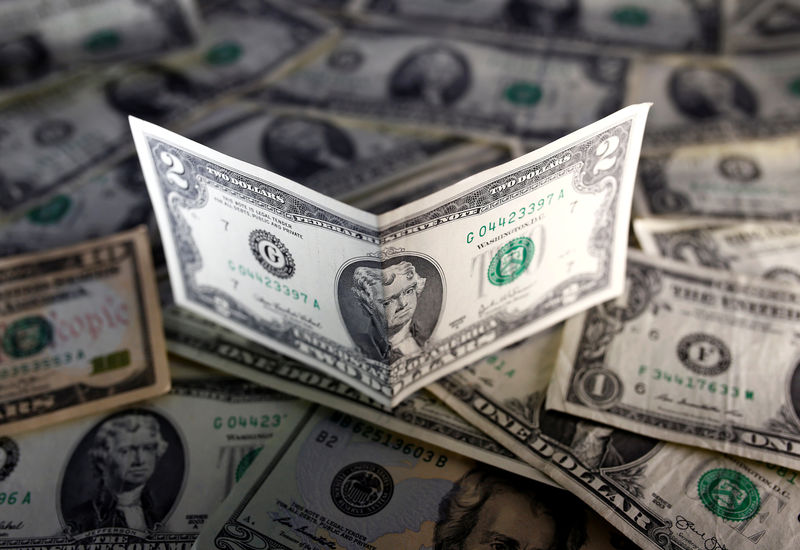By Peter Nurse
Investing.com - The U.S. dollar edged lower in early European trade Friday ahead of the key monthly jobs report, and the yen weakened after the Bank of Japan retained its ultra-dovish stance.
At 04:00 ET (08:00 GMT), the Dollar Index, which tracks the greenback against a basket of six other currencies, traded 0.2% lower at 105.125, but was on track for a weekly gain of 0.7%.
The dollar has handed back some of the week’s strong gains after the weekly jobless claims data, released on Thursday, showed that the number of Americans filing new claims for unemployment benefits increased by the most in five months.
However, losses are minor as traders await the release of the widely-watched monthly payrolls report later in the session. This was an economic release that Federal Reserve Chair Jerome Powell specifically mentioned earlier this week as influencing the thinking of the central bank policymakers as far as further interest rate hikes are concerned.
Nonfarm payrolls are expected to have increased by 205,000 jobs last month, a slowdown from the blockbuster 517,000 added in January, but the possibility of another upside surprise exists, especially after Powell’s hawkish tone in his semi-annual testimony to Congress.
Elsewhere, USD/JPY rose 0.2% to 136.32 after the Bank of Japan held interest rates at record lows earlier Friday, and said it will continue with its very soft monetary policy in the last meeting with Governor Haruhiko Kuroda in control.
Kazuo Ueda is set to take over the leadership of the central bank, and has signaled that he will maintain the BOJ’s ultra-dovish stance, at least in the near term.
EUR/USD rose 0.2% to 1.0602 after German consumer prices, harmonized to compare with other European Union countries, rose by 9.3% on the year in February, up 1.0% on the month.
Although these numbers confirm the preliminary data, they illustrate the difficulties the European Central Bank will have bringing inflation in the Eurozone back down to its medium-term target of 2.0%.
GBP/USD rose 0.2% to 1.1947 after data released earlier Friday showed that U.K. gross domestic product rose by 0.3% month-on-month in January, above the expected 0.1%.
Signs the British economy is proving somewhat resilient could help the Bank of England to decide to raise interest rates again this month.
AUD/USD rose 0.2% to 0.6600, NZD/USD rose 0.2% to 0.6114 and USD/CNY edged higher to 6.9660.
USD/TRY rose 0.1% to 18.9678, with the Turkish lira near a record low against the dollar following last month’s massive earthquakes and as the country continues the unorthodox monetary policies under President Tayyip Erdogan.
The lira lost some 30% of its value against the dollar in 2022 and 44% the year before.
